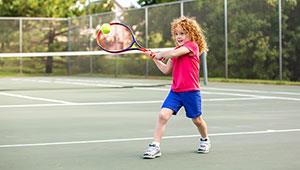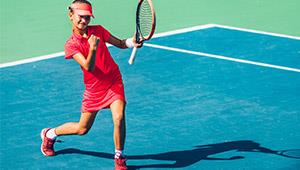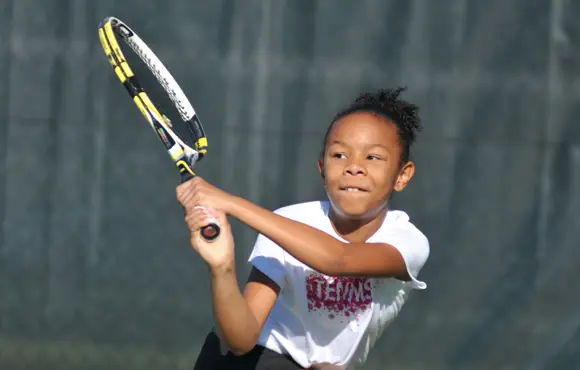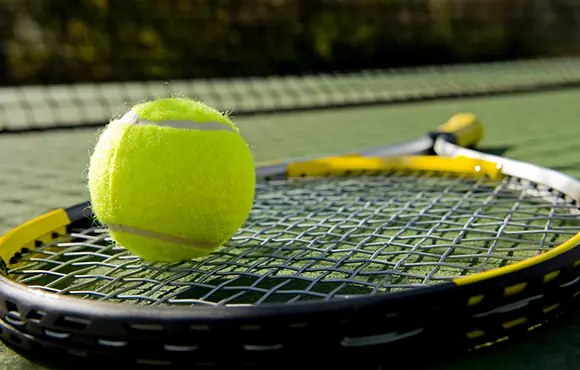If Charlie played tournaments seriously, he would learn, first hand, the importance of hard work in achieving specific goals, emotional control, recovery from setbacks and performing under pressure.
I knew I could tell him about these things a thousand times in a theoretical setting and make no impact. But I also knew that the intense elation and searing pain of winning and losing tournament matches would drive these lessons home far more convincingly than anything I could say.
And Charlie, I must admit, exceeded my wildest expectations. Long on character but short on athletic ability, improvement did not come painlessly; Charlie had to work harder, longer, and concentrate more intensely than his opponents to reach the same level of skill.
But he was willing to do it. He was on the practice court every day, diligently working to improve his techniques. Although he did get frustrated when he couldn't master something new, he never considered quitting. (Learning the spin serve, though ultimately successful, was not a happy experience.)
Above all, Charlie's competitive nature drew him to the tournaments, and he tried to play one about every other week.
He was a ferocious little warrior who never got discouraged; he never lost his head and could concentrate for hours. He was ranked about 100 in Southern California in the 14's at the time of the Santa Barbara tournament and had never lost to a kid his own age who had been playing less time than he had.
That's not bad for a kid who was all thumbs in most sports and who was once klutzy enough to injure himself falling off the top of a slide—a feat normally considered to be impossible.
Charlie loved winning matches, accumulating trophies, and moving up in the Southern California rankings. These things drove him to practice and improve. His tournament successes made him happy and rewarded his investment of work, sweat, pain, and discipline.
They made all the hardships worthwhile and motivated him to continue the development process. So, of course, I liked to see my admirable little son win and be happy, what parent wouldn't?
Although he would get his "life lessons" from tennis whether he won or lost, I got worked up during tournaments because I wanted him to see his work bring tangible rewards.
Winning or losing, I let him know that he was on the right track. I had the lurking fear that if he lost too often he might begin to doubt the process. After all, how many distressing losses could Charlie—any Charlie—take before losing heart and giving up?
- 3
- of
- 5









Discuss This Article